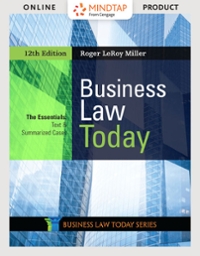Question
Pfeizer is currently the monopolist in the market for a Covid-19 vaccine. Suppose that in July 2020, the inverse demand for the vaccine in the
Pfeizer is currently the monopolist in the market for a Covid-19 vaccine.
Suppose that in July 2020, the inverse demand for the vaccine in the U.S. was given by: P = 25 - (1/10)Q, where price is measured in dollars per dose and quantity is measured in millions of doses. Pfeizer incurs a constant marginal cost equal to $10 ( MC=10).
a. (10 points) What is Pfeizer's marginal revenue? What is Pfeizer's profit-maximizing quantity? What price would Pfeizer charge for this quantity? Illustrate your answers on a graph where you place Q on the x-axis and P on the y-axis. Make sure your graph includes: (i) the inverse demand, (ii) the marginal revenue, (iii) the marginal cost, and (iv) all the relevant intercepts.
The production of the vaccine entails fixed costs equal to $600 million. [Therefore, total costs are TC=600+10Q ].
b. (6 points) Calculate the profit that Pfeizer would make if it sold the profit-maximizing quantity at the price that you found in part a. Would Pfeizer find it profitable to develop and produce the vaccine? Given Pfizer's decision, what would society's surplus (Total Surplus) be?
You do not need to have answered questions a. and b. to solve any of the following questions (but you do need to use the information on demand and cost provided above)
The U.S. government recognized that the Covid-19 vaccine generates positive externality. In July, it estimated that each additional dose of the vaccine generates a constant marginal external benefit equal to MEB=5.
c. (6 points) What is the equation of the marginal social benefit (MSB) of the vaccine? What is the efficient level of production? Illustrate your answer on a new graph where you include (i) the inverse market demand function, (ii) the MEB, (iii) the MSB, and (iv) Pfeizer's marginal cost. [There is no need to draw the MR]
The U.S. government decided to purchase the Covid-19 vaccine from Pfeizer and provide it to consumers for free. For the remainder of the question, assume that the government cares about consumers' and third parties' welfare (surplus), and therefore the U.S. government's inverse demand for the vaccine is equal to MSB.
Question d. is challenging. Please answer it only if you have time.
d. (6 points) What is the maximum amount (lump sum) that the S. government would be willing to pay for a take-it-or-leave-it offer of 200 million doses of the vaccine? Explain. [Hint: With a take-it-or-leave-it offer, the government does not choose how much to purchase at a given price, but it purchases a given number of doses at a contracted amount (lump sum). Thus, this question does not require the calculation of the maximum price, but the calculation of the maximum lump sum that they would be willing to pay. Keep in mind that consumers and third parties receive the benefit of the vaccine and the government incurs the cost]
In July, Pfeizer offered to sell the vaccine to the U.S. government at a price of $20 per dose.
e. (4 points) Would the U.S. government choose to buy 200 million doses of the vaccine at this price?
In July, the U.S. government purchased 100 million doses of the vaccine.
f. (6 points) Was this quantity Pareto efficient? Was it a Pareto improvement compared to a situation where the market for Covid-19 did not exist (and so no transactions took place)?
In December, because of Covid-19's second wave, the U.S. government re-estimated the positive external effects of the Covid-19 vaccine and determined that the marginal social benefit is MSB = 40 - (1/10)Q, where Q represents the quantity of vaccine in addition to the quantity purchased in July.
g. (4 points) Would the U.S. government be willing to buy an additional 100 million doses (for a total of 200 million doses) of the vaccine at a price of $20?
In December, a number of countries expressed their interest in purchasing Pfeizer's Covid-19 vaccine. Assume that Pfeizer's marginal revenue in the U.S. is MR = 40 - (1/5) Q and Pfeizer's marginal revenue in the rest of the world ("ROW") is MR = 25 . Also assume that Pfeizer has a capacity constraint of one billion doses.
h. (8 points) How many additional doses of Covid-19 vaccine is Pfeizer willing to sell to the U.S.? What is the maximum price that the U.S. government would be willing to pay for this quantity?
Step by Step Solution
There are 3 Steps involved in it
Step: 1

Get Instant Access to Expert-Tailored Solutions
See step-by-step solutions with expert insights and AI powered tools for academic success
Step: 2

Step: 3

Ace Your Homework with AI
Get the answers you need in no time with our AI-driven, step-by-step assistance
Get Started


